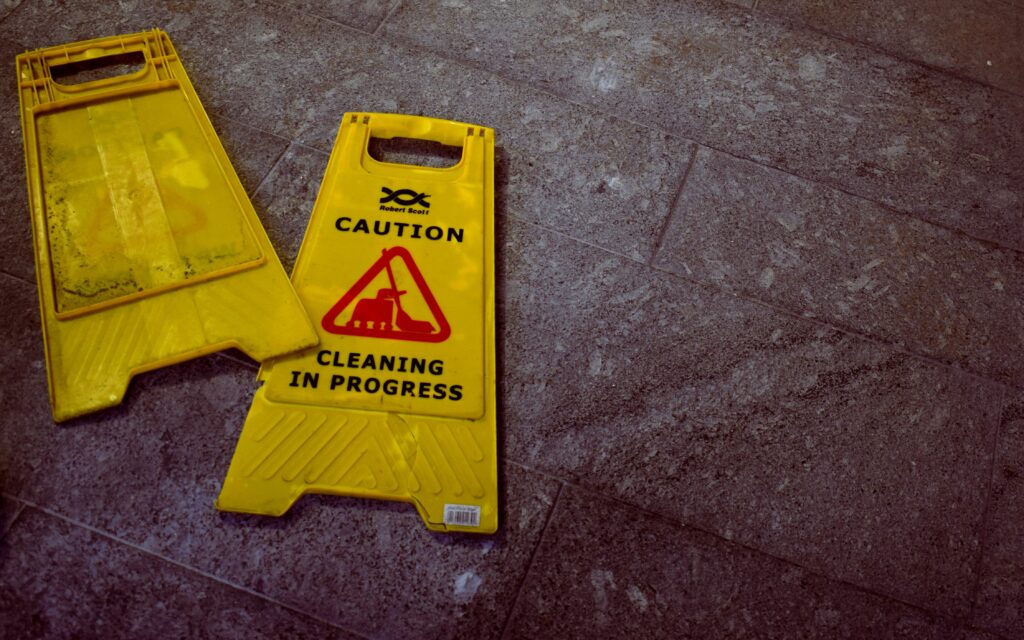How Hospitality Harbours Modern Slavery
When the public imagines slavery, a majority might picture men and women being kept as property through the threat of violence. As undeniably evocative as these images are though, modern slavery is multi-faceted, encompassing many different forms of forced labour. While more ‘traditional’ or ‘chattel’ forms of slavery are still prevalent, these cases are only one aspect of a wider issue. Often the means by which people are enslaved in the modern world are more complex and difficult to detect.
It might surprise some, then, that even workers with an employment contract can fall under the definition of modern slaves. However, through processes such as contract slavery and debt bondage, contracted workers can be considered enslaved. In fact, more than many other businesses, the hospitality industry is vulnerable to these forms of modern slavery. Rather than employ in-house workers, many large hotels and casinos will obtain their security team, cleaners, or dishwashers through third-party organisations, meaning that the details of their employment will often be hidden from the businesses’ executives. Another risk is the fact that hospitality businesses generate an enormous quantity of supply chains in order to meet the demands of consumers. The reality is that unless they have maintained a stringent anti-slave policy, every single one of these supply chains is vulnerable to modern slavery. Following the COVID pandemic, many hospitality business may already be in precarious situations, and the fallout from not maintaining modern slavery compliance could be devastating. Therefore, we urge those with positions of authority in the world of hospitality to take immediate action.
How does Modern Slavery Policy Apply to Workers with Employment Contracts?
Part of the nature of employment contracts is that, as well as ensuring that a number of hours of work are completed, the contract acts as a protection against exploitation. It is an obvious red flag, therefore, when workers have not signed an employment contract. Often the case is that these casual workers have immigrated illegally, and a contract would be no use to them as, even if their employer breaks their terms, they have no way to challenge their employer in court without deportation.
Equally, though, it is crucial that modern slavery policy applies to workers with employment contracts as it does to workers without contracts, as although they often do not experience the same issues that casual workers are subject to, there are a separate set of circumstances that determine their status as modern slaves.
The most directly applicable form of modern slavery to contracted workers, including in the hospitality industry, is contract slavery, which involves the victim being misled into signing an exploitative contract from which they cannot escape. Often when this contract is first signed, it is either not written in the worker’s spoken language, or the worker might be illiterate and sign a contract that is not fully explained to them. Consequently, when they arrive at their place of work, often paying expensive travel fees in order to immigrate, the worker is billed extortionate rates for housing, food, and training. Victims of contract slavery are often promised that they will be able to earn enough to pay for their living essentials within a short amount of time, but the exploitative contract is usually engineered so that victims are unable produce savings due to an artificially inflated cost of living. The threat of violence also means that the worker is unable to leave or look for support.
Any businesses’ modern slavery policy must also reckon with the threat that debt bondage poses for the safety of its employees. Put simply, debt bondage is a way in which workers are forced to work by their employers through perpetuating an endless cycle of debt. Workers are paid advances by their employers in order to pay for necessities such as travel costs or healthcare, which are then ‘worked off’. However, these loans are often weighted so that, due to regular increases in interest, it is impossible to ever pay off the debt. Often practitioners of debt bondage will use false accounting methods and extortionate levels of interest in order to maintain this form of bondage, while the amount that remains to be paid off by the worker will be kept hidden so they remain at the job indefinitely. Although the financial aspect of this form of bondage makes it difficult to detect, employers will frequently also coerce victims of debt bondage through physical or mental abuse.
As a result of relocation and related costs, immigrant or trafficked workers are more vulnerable to both contract slavery and debt bondage. Both these forms of movement involve large payments, either for transportation or travel documents. In the case of contract slavery, this further contributes to immigrant workers’ financial restrictions. Sometimes immigrant workers will take loans out from their employers to pay for travel costs, which can begin the cycle of debt bondage. In the hospitality industry, then, modern slavery policy cannot soley apply to casual workers, but must also encompass workers with exploitative contracts or debt bondage.

Modern Slavery Business Risks in the Hospitality Industry
The ways in which contract slavery and debt bondage lead to modern slavery business risks in the hospitality industry are manifold. While monitoring workers within the interior employment structure of an establishment is more manageable, modern slavery becomes a more tenacious issue when engaging with exterior third parties. As mentioned before, some of the contracted workers most at risk include the business’s security team, cleaners, and dishwashers, but can also include caregivers, gardeners, and even construction workers.
Hiring contracted workers is standard practice for most large hotels and casinos in order to save on recruitment, but the downside of this is that because the establishment has no access to the employment contracts of the workers, it becomes harder to ensure that modern slaves are not integrated into the business. Consequently, it is more difficult to guarantee that workers employed by a third party are given sufficient sick or annual leave when they are employed by a third party. Many contracted workers also happen to be immigrants, who, as explained earlier, are more vulnerable to contract slavery due to language differences, and particularly likely to be in a situation of debt bondage as a result of costs incurred by the immigration process.
Supply chain workers constitute another modern slavery business risk, and are frequently harder to monitor than third party workers. The nature of businesses in the hospitality industry means that, as well as exceptional service, they require a broad variety of products to provide the best possible experience for their customers. From bedding and furniture for rooms, to food and drink for restaurants and bars, the amount of materials required is truly vast. As such, numerous supply chains, reaching across multiple industries, are utilized by almost all hotels. This presents a challenge from a modern slavery perspective as in order to fully eliminate business risk, these supply chains need to be effectively monitored.
Responses to Improve Modern Slavery Compliance
So what can employers do in order to improve modern slavery compliance in their businesses? The first and easiest step is having a clearly stated position on the issue. Consider how a brand’s statement could impact the hospitality industry’s culture, and how it could encourage other businesses to take steps to prevent modern slavery.
One potential response in order to improve the job security of workers and protect them from the consequences of modern slavery is to repurpose contracted workers that might otherwise have been laid off. For the safety of workers and customers, it is also necessary that employees feel safe and able to report any incidents or concerns through grievance mechanisms. There must be a clear escalation policy for workers who might be experiencing issues, and employers must ensure that all workers, including contracted workers, are treated fairly and paid appropriately.
Additional training is also essential for all staff, especially on the nexus between modern slavery and the hospitality industry. The training should be delivered to all managers, as well as offered to subcontractors, and delivered in the spoken languages of the employees. This training should include education for all workers on the risks of taking out loans from their employers, and alternative loan sources, in order to reduce the risk of debt bondage. Following from training, increased due diligence from all levels of staff is also crucial for modern slavery compliance. Some of the markers of modern slavery include workers who lack freedom of movement, work involuntary hours, or who have indicators of substantial debt. Signs of physical abuse, confinement, malnourishment, poor hygiene, fatigue, untreated illness, and unusual behavior are also indicators. Some of the most effective ways to monitor modern slavery include comprehensive audits, surprise inspections, worker interviews, and document inspections. Especially important is maintaining positive working relationships with managers and having regular site visits to ensure modern slavery compliance.
If you’re interested in learning more about modern slavery in the hospitality industry and how to implement effective strategies, we’re here to help. Feel free to contact us for a no-obligation consultation to discuss how we can work together to strengthen your modern slavery responses.
Guest Author: Scott Thomson

